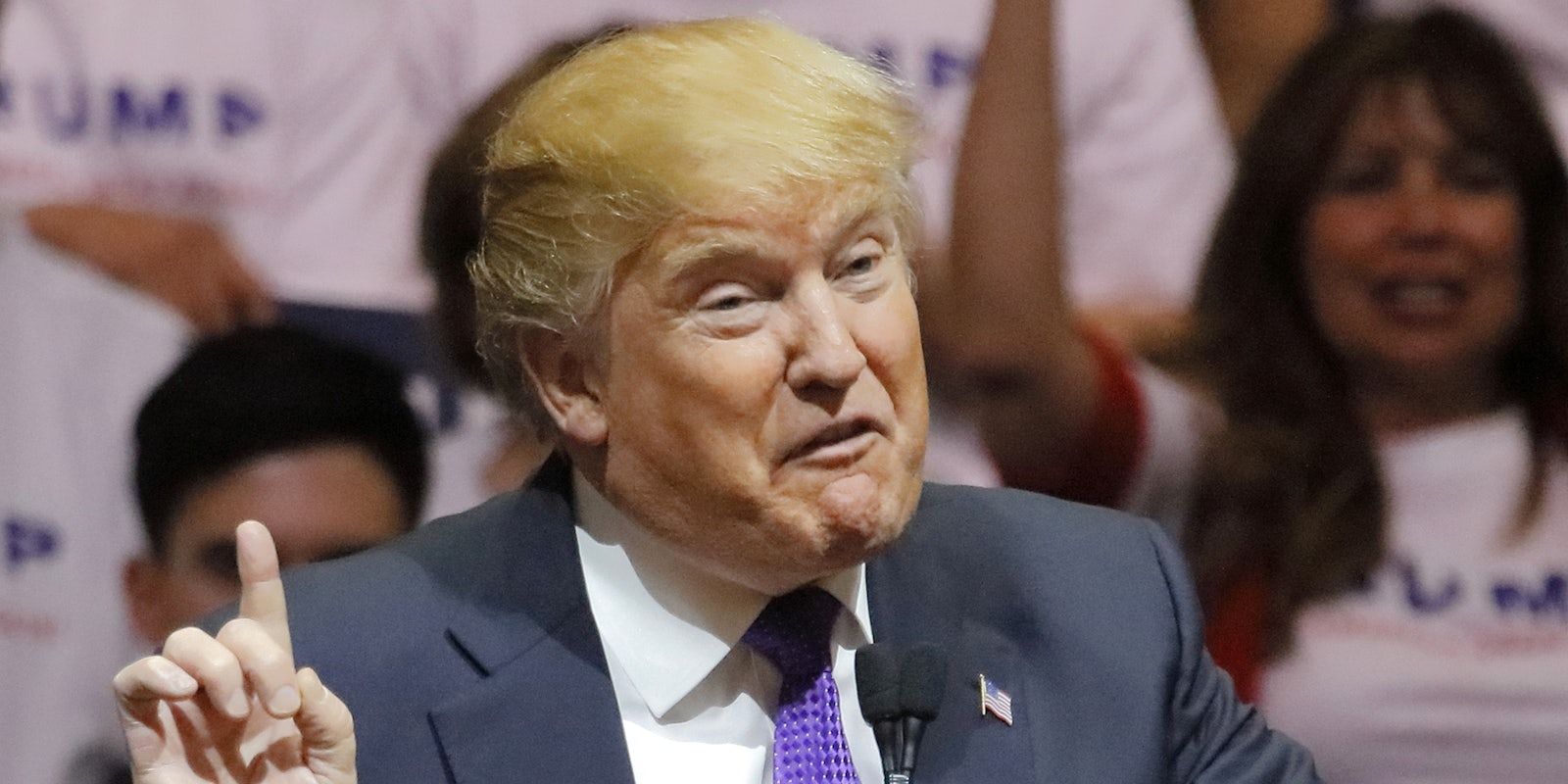President Donald Trump has lashed out against a report that he accidently promoted chief strategist Steve Bannon to the National Security Council after neglecting to thoroughly read the executive order he was signing.
In late January, during an aggressive rush of executive actions, Trump removed a number of leading and experienced military advisors from the intelligence forum and added former Breitbart boss and inner circle confidante Bannon—a man, like Trump, with no past experience in government. The swap was controversial enough, but White House staffers claim Trump had been blindsided and had signed the order without having been “fully briefed.”
The revelations were part of New York Times article published on Sunday, a compilation of more than a dozen interviews with staffers, aides, officials, and insiders who anonymously relayed stories from within the halls of power.
True to form, however, the president denied it all on Monday and told the world so via Twitter.
The failing @nytimes writes total fiction concerning me. They have gotten it wrong for two years, and now are making up stories & sources!
— Donald J. Trump (@realDonaldTrump) February 6, 2017
Earlier that day, Trump appeared to react to the Times report by declaring, “I call my own shots, largely based on an accumulation of data.” A bizarre phrase that instantly inspired a new meme.
I call my own shots, largely based on an accumulation of data, and everyone knows it. Some FAKE NEWS media, in order to marginalize, lies!
— Donald J. Trump (@realDonaldTrump) February 6, 2017
But Trump’s obsession with public opinion and concern over backlash seems to be supported by the article he condemns.
In it, Trump’s aides complain that the president watches too much television. A creature of habit, they claim, every lunchtime he pauses to catch up on the news channels and gauge the public’s narrative. When the normal working day wraps up at around 6:30pm ET, he then retires to his living quarters to lounge in his bathrobe and watch more television. He’ll occasionally wander the halls, the Times reports, his wife and young son hundreds of miles away in New York.
Elsewhere in the White House, and without him, his advisors are busy deliberating public policy and political strategy in the darkness of the cabinet room—the Times describes that they were unable to find the room’s lighting.
The sense that Trump is isolated, even within his own administration, is underlined if the allegations of Bannon’s executive order move are true. The Times sources say that Trump was “angry” at Bannon, but that he still remains “the president’s dominant adviser.” Inside the close circle of advisers, staffers report an ongoing power struggle between Bannon, the anarchic ideologue whose energy seems to have shaped these opening weeks, and chief of staff Reince Priebus, who wants to implement more structure and organization.
“We are moving big and we are moving fast,” Bannon told the Times of the tumultuous first two weeks. “We didn’t come here to do small things.”
Priebus, on the other hand, has become a voice of measure and establishment-style restraint. Interviewed staffers reported, for example, that the chief of staff has created a 10-point checklist for initiatives and administration communications. This happened following the roll-out of Trump’s infamous travel ban, which caused chaos in airports as citizens from several Muslim-majority countries were turned away regardless of status.
If the Times is to be believed, then Trump’s first two weeks in office, much like the campaign trail that preceded it, appear to be crude bluster and improvisation. Only weeks into a four-year term, the heated momentum is stalling as internal conflict and preoccupation with the media take primacy.
That said, the first step in any sustainable strategy might simply be to stop writing policy in the dark.


